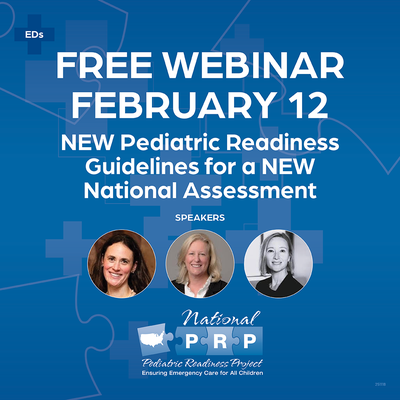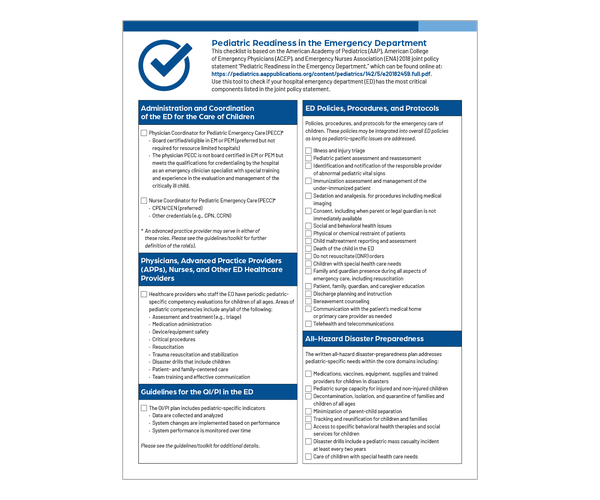National Pediatric Readiness Project
- National Pediatric Readiness Project
- About
- Assessment
- Checklist & Toolkit
- Selected Publications
- Spread the Word
- FAQs
- Contact

The National Pediatric Readiness Project (NPRP) empowers emergency departments (EDs) to improve their capability to provide high-quality care for children, also known as being “Pediatric Ready.” Led by the Health Resources and Services Administration EMSC Program with support from multidisciplinary organizations, NPRP offers free and open-access assessment opportunities as well as resources to address gaps.
Why improve pediatric emergency care?
Children have unique characteristics that require specific care, especially in emergencies. But not all children have access to specialized pediatric care. In fact, 80% of children receive emergency care in general EDs. Low pediatric patient volume can make it challenging to prioritize pediatric care. In the 2021 NPRP assessment, the median score for EDs was 69.5 out of 100.
Pediatric Readiness saves lives.
Research shows that high levels of Pediatric Readiness (>87 points) are associated with:
- 76% lower mortality rate in ill children
- 60% lower mortality rate in injured children
- 2,143 children’s lives saved across the United States each year




